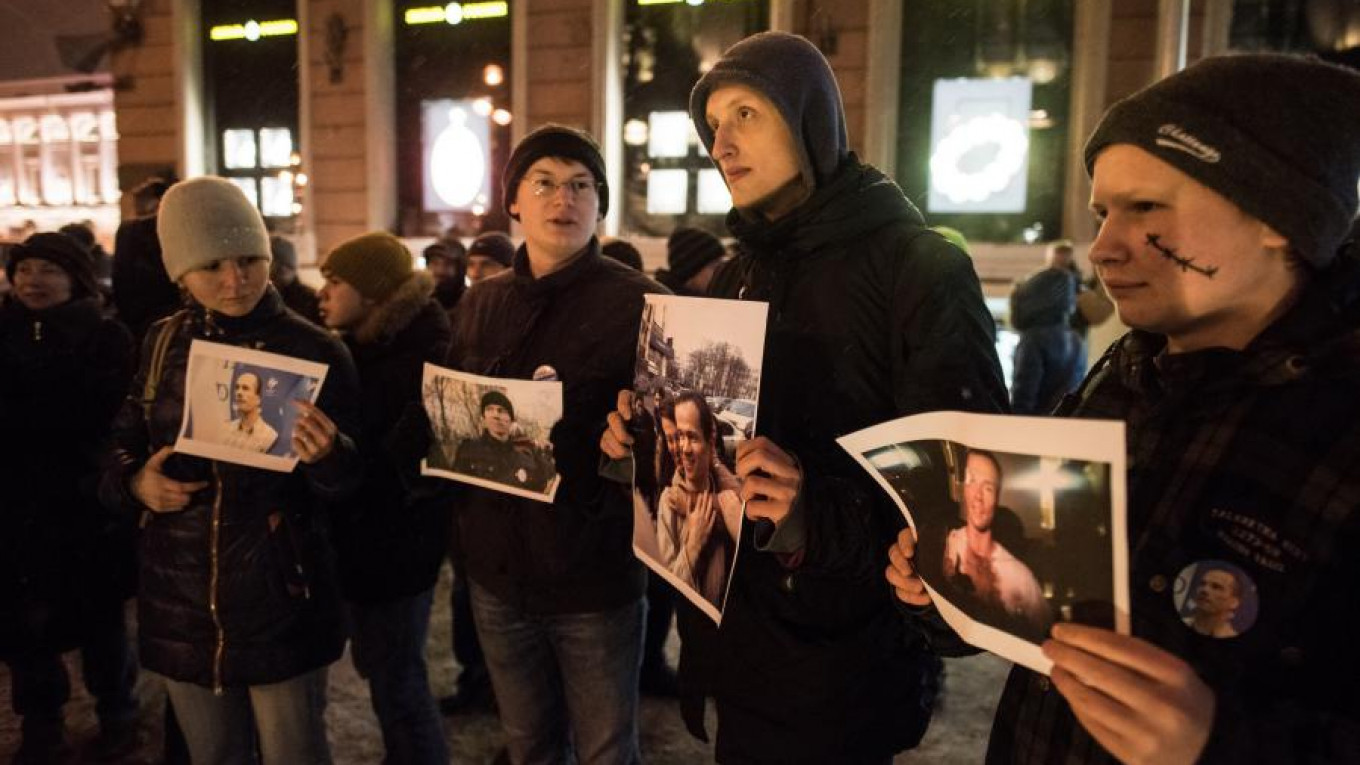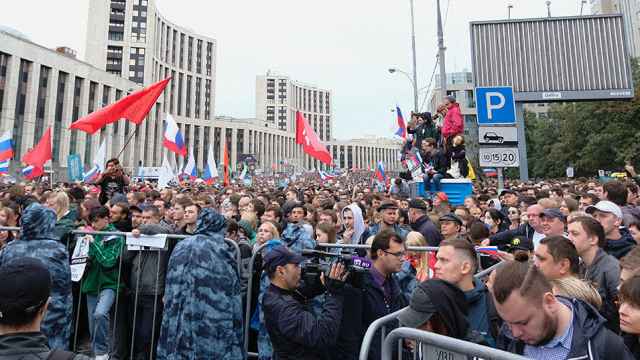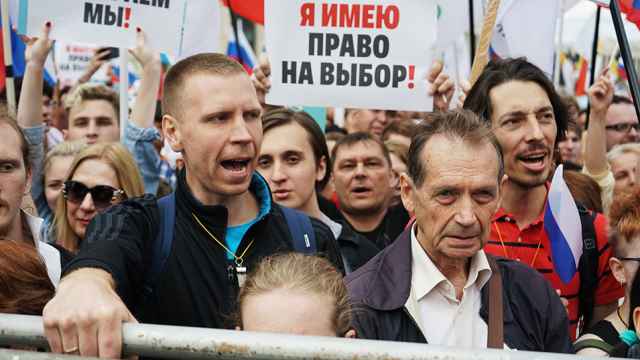Rights activists are trying to locate an opposition activist who says he was tortured in a Russian prison and then went missing in state custody.
The opposition activist, Ildar Dadin, has been incommunicado for over a month while being transferred to another prison, and activists say his relatives “fear for his life and health.”
On Jan. 2, Lev Ponomaryov, director of the “For Human Right” organization, and Alexei Venediktov, editor-in-chief of the Ekho Moskvy radio station, sent a letter to the Federal Penitentiary Service (FPS) demanding that the authorities reveal Dadin’s location. They were joined by St. Petersburg legislator Boris Vishnevsky, who also demanded information from the FPS.
In his letter, Ponomaryov emphasized that Dadin’s relatives fear for his safety because he had revealed torture in prison. Officials might try to punish him for speaking out, they worry.
On social media, Russians have joined the campaign to get information about Dadin’s whereabouts, writing on Facebook and Twitter with the hashtag #ГдеИльдарДадин (#WhereIsIldarDadin). So far, however, there has been no new information.
In December 2015, Dadin was sentenced to 2.5 years in prison for his involvement in anti-government protests. He was the first person to be convicted under a new law criminalizing “repeated violations of protest laws."
In October, Dadin said in a letter to his wife, journalist Anastasia Zotova, that he had been subjected to brutal beatings and torture at the hands of prison guards. Zotova subsequently published the letter, which sent shockwaves through Russia’s human rights community.
The prison in question did not deny using force against Dadin, but medics who examined him after the alleged beating claimed to have found no evidence of trauma.
Dadin was subsequently transferred to another prison at the suggestion of Russian Human Rights Ombudsman Tatiana Moskalkova.
In Russia, prison transfers — an unusual, secretive process known as etapirovanie — can often last several weeks. During this time, the prisoner is frequently out of communication with their family and the authorities may refuse to disclose the inmate's destination.
Nonetheless, disappearing for more than month is unusual, according to rights activist Ponomaryov. In his experience, prison transfers take a long time, but Dadin’s case stretches the reasonable limits.
“Waiting a month [for information]? That’s never happened before,” Ponomaryov told Radio Svoboda.
Ponomaryov says he contacted Russia's FPS, and was told that they do not know where Dadin is currently located.
“I’m already beginning to worry,” he said. “[Dadin’s] mother and his wife are also worried.”
A Message from The Moscow Times:
Dear readers,
We are facing unprecedented challenges. Russia's Prosecutor General's Office has designated The Moscow Times as an "undesirable" organization, criminalizing our work and putting our staff at risk of prosecution. This follows our earlier unjust labeling as a "foreign agent."
These actions are direct attempts to silence independent journalism in Russia. The authorities claim our work "discredits the decisions of the Russian leadership." We see things differently: we strive to provide accurate, unbiased reporting on Russia.
We, the journalists of The Moscow Times, refuse to be silenced. But to continue our work, we need your help.
Your support, no matter how small, makes a world of difference. If you can, please support us monthly starting from just $2. It's quick to set up, and every contribution makes a significant impact.
By supporting The Moscow Times, you're defending open, independent journalism in the face of repression. Thank you for standing with us.
Remind me later.






